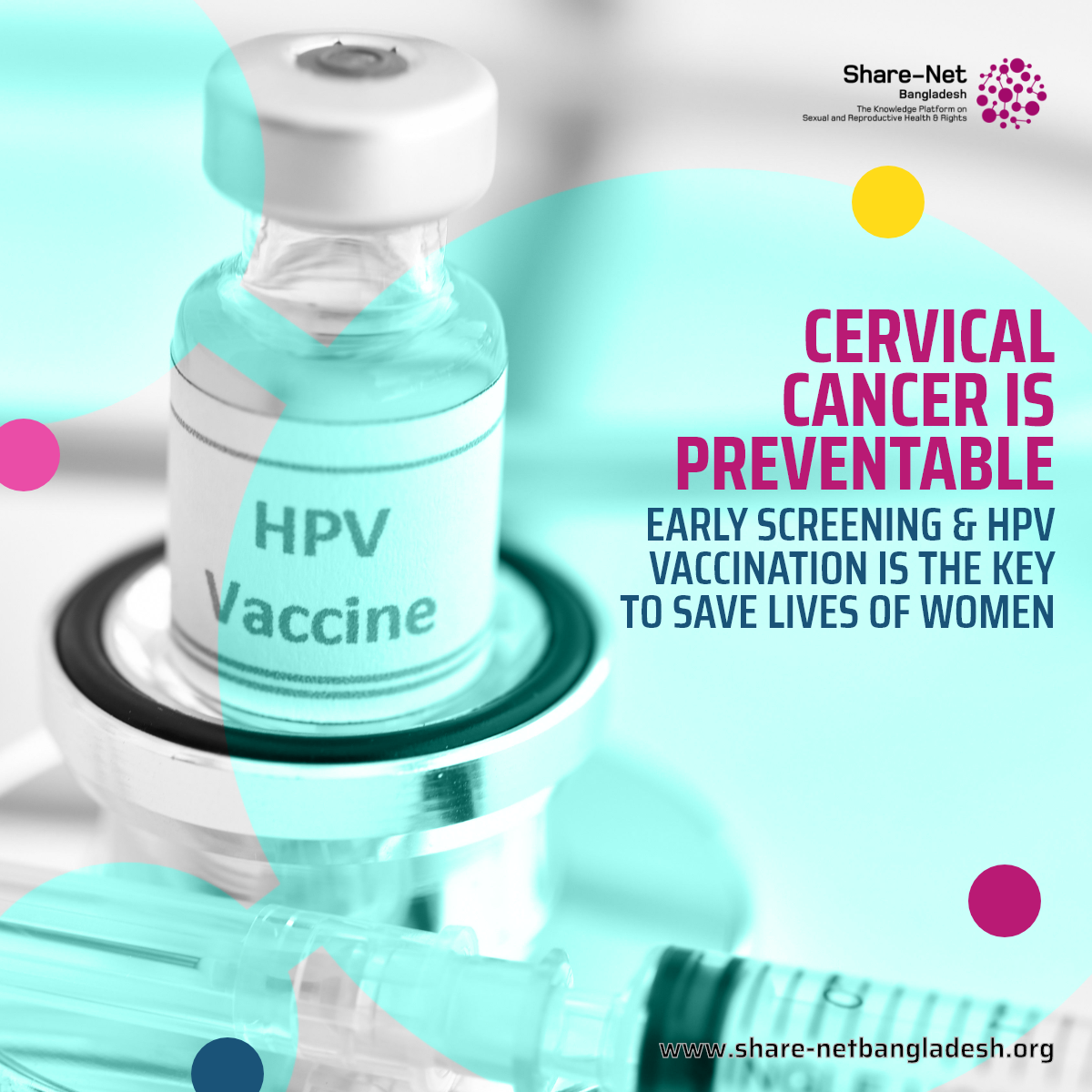Cervical Cancer is Preventable: Early Screening and HPV Vaccination Is The Key To Save Lives of Women
Cervical cancer, the fourth most common cancer in women worldwide, claims thousands of lives annually. In Bangladesh, this disease ranks as the second most common cancer among women, with approximately 12,000 new cases and over 6,000 deaths reported each year. Despite these alarming figures, cervical cancer is preventable and treatable if detected early. Vaccination and routine screening remain the two most powerful tools to combat this deadly disease.
The Role of HPV in Cervical Cancer
Human Papillomavirus (HPV), a sexually transmitted infection, is responsible for almost all cervical cancer cases. Despite this grim reality, the HPV vaccine offers a beacon of hope. Experts emphasise that vaccinating girls between the ages of 13 and 15 can provide lifelong protection against cervical cancer. Raising awareness about this vaccine and ensuring access for young girls in Bangladesh could significantly reduce the disease burden.
Importance of Early Screening
Screening for cervical cancer can identify abnormal changes in cervical cells before they become cancerous. Women over 30 should undergo screening at least once a year, as early detection makes the disease highly treatable. Bangladesh has made strides in this area, with government initiatives and NGOs offering free screening services. However, more needs to be done to expand these services, particularly in rural areas where access to healthcare is limited.
SRHR Implications
Cervical cancer prevention is deeply tied to sexual and reproductive health and rights (SRHR). Early marriage, having children before the age of 18, and limited access to healthcare are significant risk factors for cervical cancer in Bangladesh. Addressing these issues requires a comprehensive approach that includes education on sexual and reproductive health, promoting personal hygiene, and advocating for gender equality.
Moreover, the lack of awareness about HPV and the importance of screening highlights the need for targeted SRHR campaigns. Educating women and their families about the benefits of vaccination and early screening can help dispel myths and encourage preventive practices.
The Path Forward
To combat cervical cancer effectively, Bangladesh must focus on strengthening vaccination programs, increasing accessibility to screening services, and integrating SRHR education into school curricula. Stakeholders, including the government, NGOs, and healthcare providers, must collaborate to ensure equitable access to these services for all women, especially those in underserved communities.
Cervical cancer is not just a health issue—it’s a rights issue. Every woman has the right to access life-saving vaccines, affordable screening, and timely treatment. With concerted efforts, the tide of cervical cancer deaths can be turned, empowering women to lead healthier, longer lives.
Source: BSS
Picture Credit:

